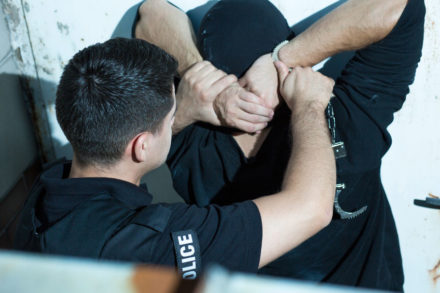A DUI field sobriety test In Oklahoma is some of the most common evidence used by the Police in a DUI. Field sobriety tests determine impairment or a BAC level in DUI stops The BAC is used to establish probable cause for a DUI arrest. The court determines their admissibility in any DUI case on a case-by-case basis, using the relevant standards for measuring reliability.
Non-standardized field tests are invalid in Oklahoma. Both the Federal Government, through the National Highway Traffic Safety Administration, and medical science do not consider reciting the alphabet, counting backward, or touching a finger to your nose as valid sobriety tests that reliably indicate the legal intoxication of the subject.
DUI Field Sobriety Test Under Oklahoma Law
Oklahoma law does not specifically mention any field sobriety test to be used in traffic stops where DUI is suspected. Instead, it refers to standard tests “including, but not limited to the horizontal gaze nystagmus (HGN) test administered by a person who has completed training in standardized field sobriety testing.” This law allows all field sobriety tests into evidence in an Oklahoma DUI felony or misdemeanor trial.
Admissible evidence of impairment, although not of a specific alcohol concentration level, includes testimony regarding the results of standard field sobriety tests (SFST) given by a trained and experienced witness.
Types Of FST
There are three types of field sobriety tests recognized by the NHTSA that are used in Oklahoma:
- the Horizontal Gaze Nystagmus test
- the Walk-and-Turn test
- the One-Leg Stand test
The officer administering these tests will look for clues suggesting a blood alcohol level that equates with legal intoxication. Depending on the test, the officer will look for a certain number of clues. If all required clues appear in a particular test, the officer will arrest you for DUI or an APC.
The Horizontal Gaze Nystagmus test
Nystagmus is the medical term used to describe the involuntary jerking of the eyeballs. If you are intoxicated by alcohol or certain drugs, this jerking of the eyeballs becomes more pronounced.
Before administering the horizontal gaze nystagmus test, the law enforcement officer will evaluate your eyes to look for resting nystagmus, unequal pupil size, and unequal tracking. If you exhibit any of these factors, there is a chance that some existing medical condition or injury is present that may render the test unreliable.
The test is administered by the officer holding a small object approximately 12-15 inches from your nose and slowly moving it from side to side. You are directed to follow the object with your eyes while holding your head still.
The Walk-And-Turn Test In Drunk Driving
This is a standardized test, so any officer who administers it must follow specific procedures and guidelines to ensure accuracy in the results. The test is divided into two stages: instruction and performance. Performing the test requires you to take heel-to-toe steps forward on a real or imaginary line, pivot, and take nine steps back. While doing the test, you must keep your arms to the side, look at your feet, and count each step aloud.
The One-Leg Stand test
Again, officers must follow the National Highway Traffic Safety Administration (NHTSA) guidelines on administering the test to reduce the likelihood of errors. Officers administer the one-leg stand test in two stages: instruction and performance.
The performance stage of the test requires you to raise one leg with your foot parallel to and approximately six inches from the ground. You count in thousands with your hands to the side while looking at your foot until the officer tells you to stop.
Blog Posts About Help With Your Diverse License After a DUI Arrest
Attorneys Experienced With FST
A criminal defense attorney must be experienced in field sobriety tests in any DUI case including aggravated DUI. It is not uncommon for these tests to be administered incorrectly by law enforcement officers. In any DUI case, one should never assume the weight that an FST should be given in determining probable cause to arrest and proof to warrant a conviction.
If the arresting officer states at trial that they administered the battery of field sobriety tests and the defendant exhibited all the signs indicating intoxication, this should lead to extensive cross-examination. The officer should be questioned on the details of every test, step by step, and how the officer interpreted the cues that allegedly indicated intoxication.
Tulsa DUI Defense Attorneys
If you’ve been charged with driving under the influence of alcohol, Kania Law Office is here to help you. The severity of punishment for a DUI in Oklahoma requires you to move forward with the assistance of attorneys who have previously handled many cases. For more information about how our Oklahoma criminal defense lawyers can help you call (918) 743-2233 or contact us online.
Tulsa's Local Criminal Defense Lawyers
 Are you looking for Tulsa attorneys who will fight aggressively for you? Our team of criminal defense attorneys have the experience needed in Oklahoma law to secure the outcome you deserve.
Are you looking for Tulsa attorneys who will fight aggressively for you? Our team of criminal defense attorneys have the experience needed in Oklahoma law to secure the outcome you deserve.
Call us today for a free consultation 918-743-2233 or contact us online.


